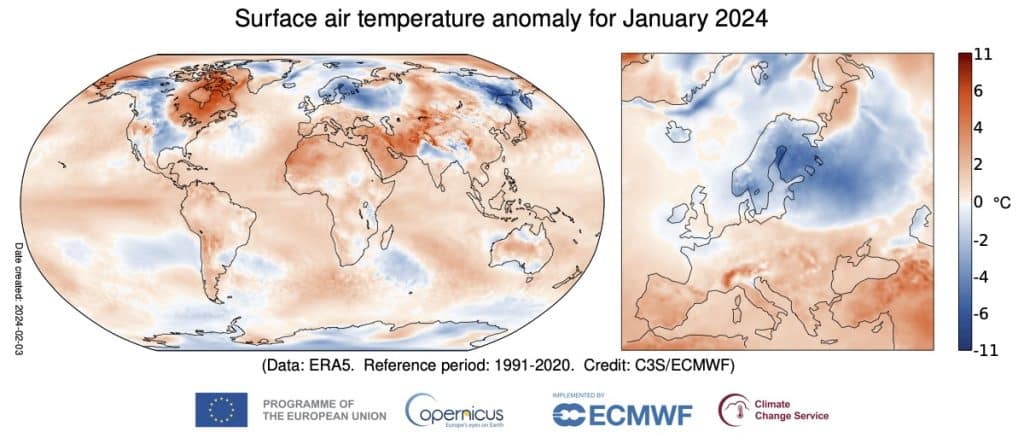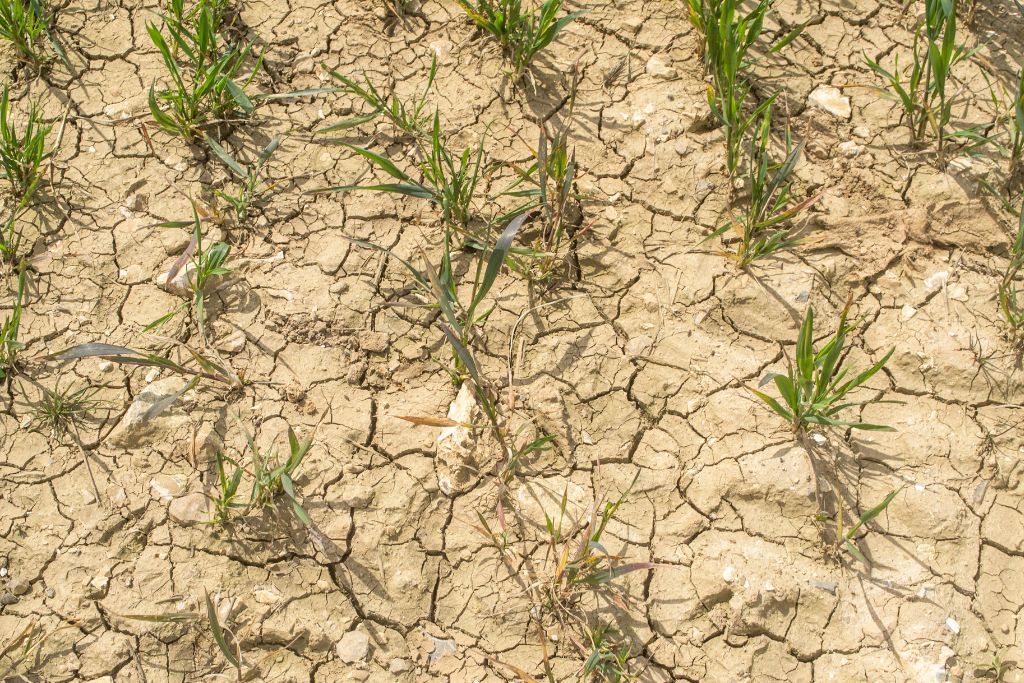It comes after scientists confirmed that last month was the hottest January on record, with temperatures 1.7C above pre-industrial levels.
—
The world’s average temperatures have been higher than the 1.5C global warming limit for 12 months in a row for the first time since records began, the European climate service Copernicus announced on Thursday.
The news came after last month was confirmed to be the hottest January in history, with average global temperatures 1.66C above pre-industrial levels, marking the eighth month in a row that average air temperatures have topped all prior records for the first time.
Between February 2023 and January 2024, global temperatures were 1.52C above the 19th century benchmark, higher than the critical threshold world leaders set in the 2015 Paris Agreement, the weather service said. While this does not signal a permanent breach of the limit, which scientists say is measured over decades, it sends a clear warning to humanity that we are approaching the point of no return much faster than expected.

2023 was the hottest year on record, supercharged by the return of the El Niño, a weather phenomenon that has pushed temperatures off the charts around the world and that is expected to last well into 2024. Last year, the United Nations said the world is already on track to warm well above 2C, adding that we are running out of time to make the transformational changes requires to cap global temperature rises and that governments must do more by 2030 to ensure that warming is kept below 2C and ideally closer to 1.5C.
“Rapid reductions in greenhouse gas emissions are the only way to stop global temperatures increasing,” said Samantha Burgess, Copernicus’ deputy director.
Last month, the UK weather forecast service said that atmospheric carbon dioxide (CO2) levels are forecast to build up faster than the trajectory required to stay on track with the 1.5C global warming threshold in 2024. The Met Office predicted that annual average CO2 concentrations at the Mauna Loa Observatory, Hawaii – home to the longest continuous record of atmospheric CO2 in the world, dating back to 1958 – will be 2.84 parts per million (ppm) higher in 2024 compared to last year, reaching a high of 423.6 ppm.
The observed, long-term increase in atmospheric CO2 levels – which are now 50% higher than pre-Industrial Revolution – is solely attributable to human activities, mainly to the burning of fossil fuels for transportation and electricity generation but also to cement manufacturing, deforestation, and agriculture.
And while natural carbon sinks such as plants and the ocean partially contribute to limit CO2 concentrations, their capacity to absorb and store carbon dioxide can vary from year to year due to short-term climate fluctuations, such as the ones driven by the El Niño Southern Oscillation (ENSO), a periodic fluctuation in sea surface temperature and the air pressure of the overlying atmosphere across the equatorial Pacific Ocean. For instance, during El Niño conditions, the annual CO2 rise tends to be faster.
The latest report by the United Nations Intergovernmental Panel on Climate Change (IPCC) warned that greenhouse gas emissions must peak by 2025 for a chance to meet the 1.5C target.
You might also like: Climate Change Will Bring Long Periods of Lethal Heat and Humidity By End of Century, Even Under 2C of Warming


















